Eggs are a staple in our household and we eat a lot of them. Up to four dozen every week, in fact.
But have you noticed how many different types of eggs there are? I had, and I wondered if there was a difference in nutritional value between free range and pasture-raised eggs.
As it turns out, eating eggs from pastured chickens is much more nutritious than eating generic supermarket eggs.
In this article, I’ll talk about some of the reasons why these eggs are healthier and explain why finding high-quality eggs in the supermarket is incredibly difficult.
Note: Since publishing this article a few years ago, we now have our own flock of pastured chickens that lay fresh eggs every day!
I’ll also briefly address the myth that the cholesterol in the egg yolk is bad for your health.
Last but not least, I’ll tell you how to determine the freshness of eggs based on the pack date code on the carton.
A Comparison of the Different Types of Eggs
If you’ve ever taken a close look at the kinds of eggs available at your local grocery store, you may have wondered about the differences.
So let’s clarify the terminology first and compare:
Conventional Eggs
If the packaging doesn’t use any of the terms listed above, you’re likely dealing with regular eggs. That means the egg-laying hens live in cages and have virtually no room to move around (let alone to spread their wings).
That’s the low end of the spectrum, and from a moral and animal welfare perspective, I would discourage you from buying such eggs.
As you can imagine, hens raised in such horrendous environments don’t lay the most nutritious eggs — another reason why I would discourage you from purchasing conventional eggs.
Cage Free Eggs
The term “cage-free hens” means exactly what it sounds like: that the hens are not confined to cages, and instead can roam “freely” in what is most likely an overfilled coop or hen house.
Chickens raised cage-free have no outdoor space, never breathe fresh air, and never see the light of day.
Most egg layers (and broilers) in this country are raised in such inappropriate environments, leading to eggs with poor nutritional value that I wouldn’t recommend buying.
Free Range Eggs
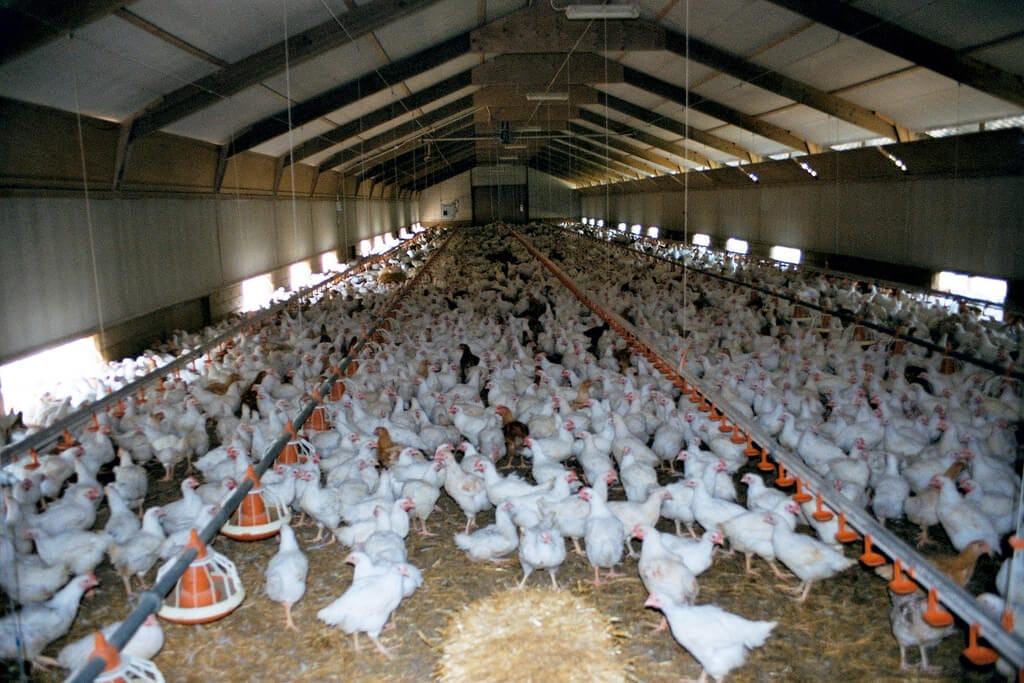
Free-range chickens have outdoor access for at least some part of the day. But according to the National Chicken Council, most chickens choose to stay close to their food and water and don’t go outside.
So from a practical point of view, the free range eggs that you enjoy for breakfast may still come from chickens that spend all day in a dirty and overcrowded hen house.
In other words, free range eggs are a small step up from conventional eggs but far removed from the quality of pastured eggs.
Omega-3 Enriched Eggs
“Omega-3 enriched” means that the hens have been fed a diet supplemented by feed that contains sources of omega-3 fatty acids, such as flax seeds.
The designation doesn’t say anything about how the hens were raised or treated, so you may be eating omega-3 enriched eggs from chickens that were kept in cages.
Still, I’d argue that feeding hens a diet that’s high in omega-3 is a good thing, and likely leads to an improved omega-3 to omega-6 fatty acid ratio in the eggs. That’s beneficial, because too much omega-6 (and too little omega-3) can negatively impact your health.
Pastured Eggs

Pastured eggs are the gold standard! This term means that the hens are allowed to roam freely on open pastures. This is the most natural and expensive approach to raising poultry.
As a result, you may have noticed that pasture-raised eggs are typically much more expensive than other types of eggs. But from an ethical perspective, pasture-raised comes as close as it gets to the natural living condition of hens.
However, it’s worth mentioning that not all pastured eggs are the same, because the term doesn’t say anything about how much pasture each hen had access to or what supplemental feed the bird was given.
For example, our 14 chickens have half an acre of space in our backyard to roam around and forage for food. That’s over 1,500 square feet per bird. Plus, we feed them an organic, soy-free and corn-free diet that helps reduce the amount of linoleic acid (an omega-6 fatty acid) they ingest, leading to healthier eggs with better fatty acid composition.
For most egg producers, raising hens in such a manner isn’t feasible because it would increase egg prices beyond what consumers are willing to pay. In other words, most pastured hens have less space and receive a corn/soy-based feed that’s high in omega-6.
But regardless of details, pastured eggs are better in every aspect than any other type of eggs you can find in grocery stores.
Other Claims You May Find on Egg Cartons
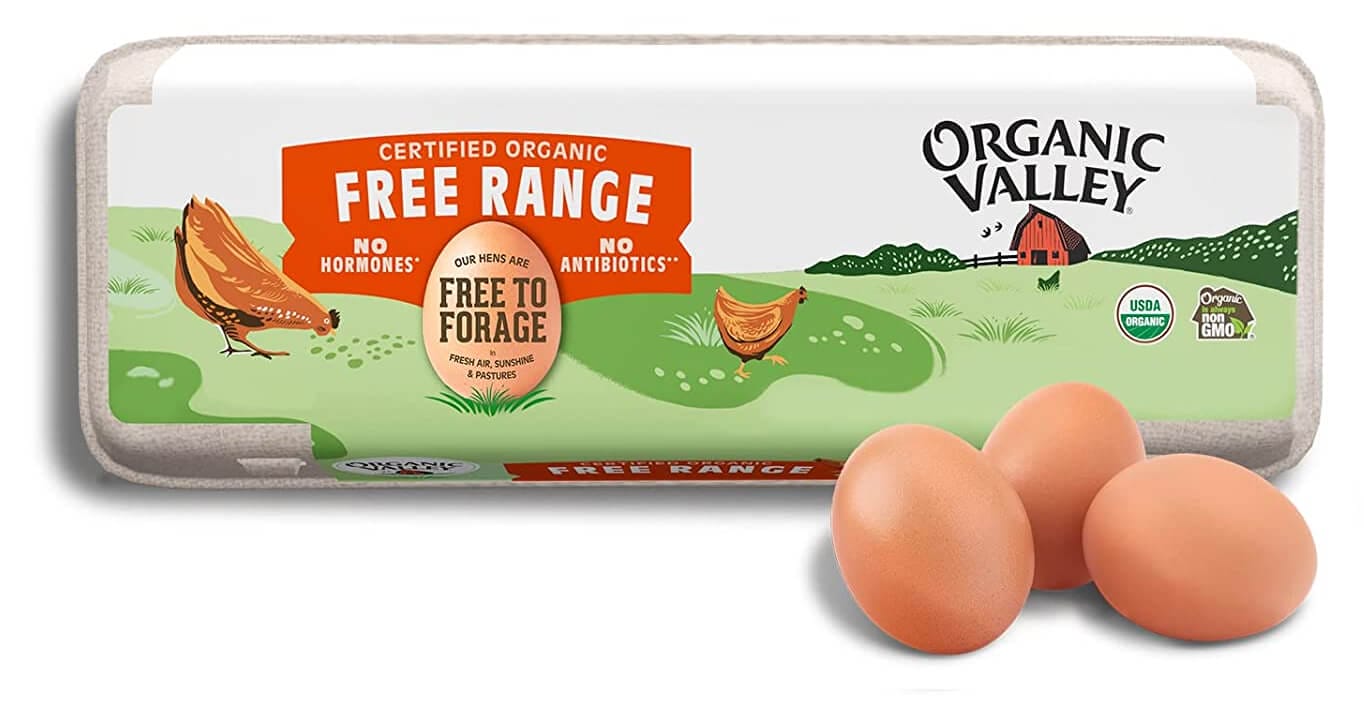
In addition to information about the egg type, you may also find additional labels and claims on egg cartons that are worth exploring.
No Hormones Added
While hormones are legal for use in cattle, the FDA has not approved the use of hormones in poultry production. As a result, all chicken eggs sold in the United States are free of hormones.
“No steroid hormone implants are approved for growth purposes in dairy cows, veal calves, pigs, or poultry.”
Source: fda.gov
So if you see the label “no hormones added” on an egg carton, it’s meaningless.
No Antibiotics
While hormones are not approved for poultry production, antibiotics are allowed.
They’re meant to prevent infections that result from overfilled and dirty hen houses. As a result, when you buy eggs that feature the label “no antibiotics used,” chances are that the hens did not have good living conditions but were at least not given antibiotics.
Farm-Raised
All chickens are raised on farms. Thus, the term doesn’t say anything about the hens’ living conditions. Cage-raised hens are also farm-raised.
Certified Organic Eggs
The “USDA Organic” seal identifies raw, fresh and processed products with at least 95% organic ingredients. For poultry production, that usually applies to the chicken feed.
Some farmers feed their hens organic feed to reduce their exposure to pesticides, synthetic fertilizers and other chemicals that are used to grow the grains, corn and soy most chickens are fed. The fewer pesticides the egg layers are exposed to, the higher their chances are of staying healthy.
As a result, organic eggs are usually another step up from the other types of eggs we’ve covered so far. Plus, all organic eggs come from hens that fall under the free-range category (see above). Just note that while all organic eggs are also free range, not all free range eggs are organic.
Additionally, all organic eggs are also non-GMO by definition.
Non-GMO
Similar to the organic classification mentioned above, the term “non-GMO” indicates that the feed the hens were fed contained only ingredients that weren’t genetically modified. It’s certainly a step up from GMO feed, but it doesn’t give you any indication about the chickens’ living conditions.
It’s also worth mentioning that all organic eggs are automatically non-GMO because the USDA Organic standard doesn’t permit the use of GMO plants.
Corn-Free/Soy Free
Both corn and soy are incredibly rich in inflammatory omega-6 polyunsaturated fatty acids (PUFAs). As a result, hens that were fed a corn and soy-based diet produce eggs that are higher in omega-6 than those of hens that had a different diet.
The problem is that corn and soy are incredibly cheap. As a result, most poultry farmers use them to raise their birds. We used to find corn-free/soy-free eggs in the grocery store a few years ago, but not anymore.
If you can find pastured eggs that also carry the corn-free/soy-free label, I recommend buying those over the alternatives.
Vegetarian Fed Hens

Chickens are insectivores, not herbivores. As a result, their natural diet consists of insects, grubs, worms and even the occasional frog.
A vegetarian diet isn’t ideal, even though chickens can extract some nutrients from plants. In other words, the label “vegetarian fed diet” is misleading marketing language.
Nutritional Value of Pastured vs. Free Range Eggs
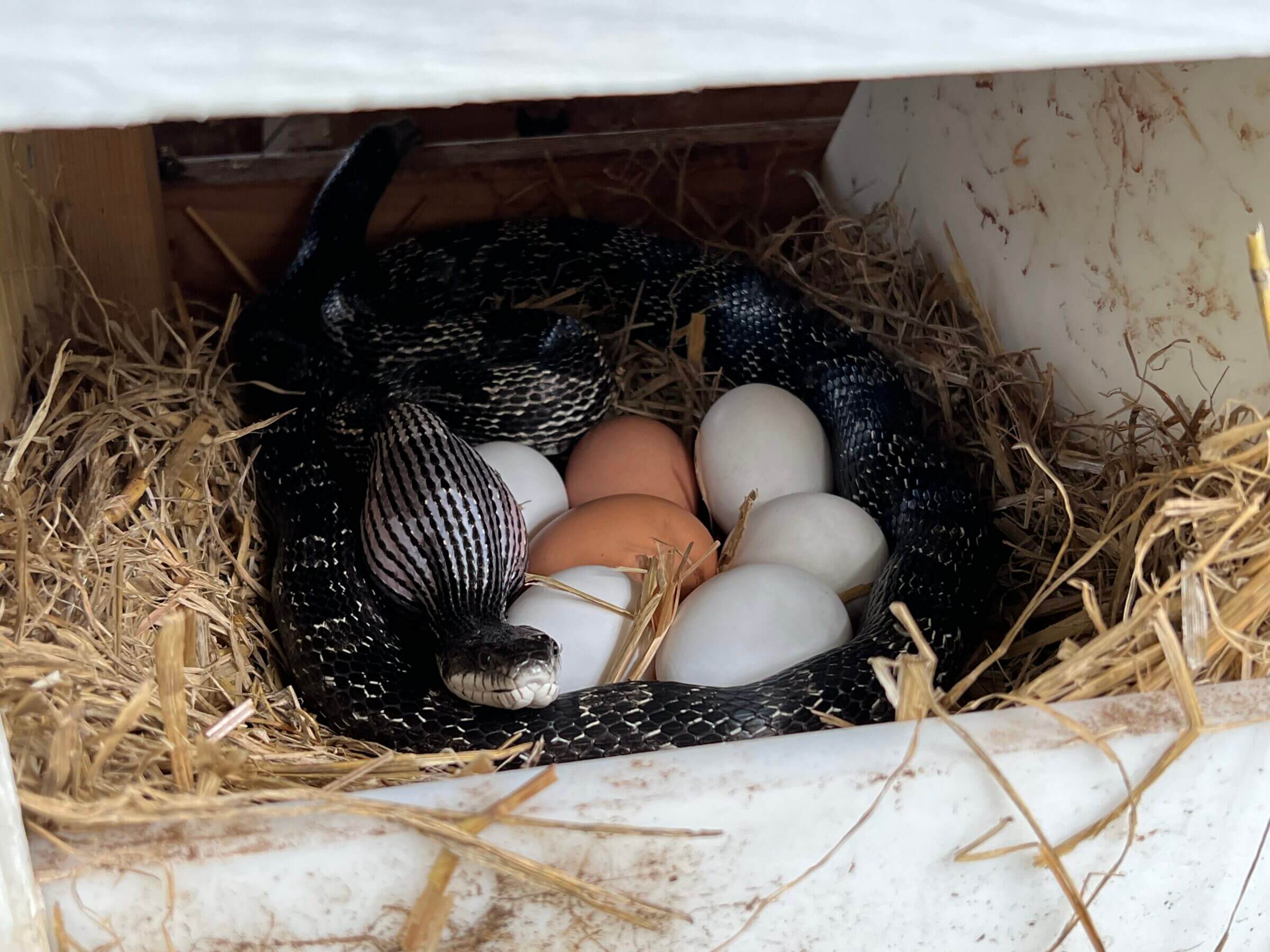
It shouldn’t come as a surprise that hens that live in a species-appropriate environment and that are fed a species-appropriate diet produce healthier, more nutritious eggs than those who live in cages without ever seeing the light of day.
A study from 2010 compared the vitamin A, vitamin E and fatty acid composition of the eggs produced by both caged chickens and pastured chickens, finding the following:
“Compared to eggs from caged hens, pastured hens’ eggs had twice as much vitamin E and long-chain Omega-3 fats, 2.5-fold more total Omega-3 fatty acids, and less than half the ratio of Omega-6:Omega-3 fatty acids (P<0.0001). Vitamin A concentration was 38 percent higher (P<0.05) in the pastured hens’ eggs than in the caged hens’ eggs, but the total vitamin A content per egg did not differ.”
Vitamins A, E and fatty acid composition of the eggs of caged hens and pastured hens.
In a nutshell, pastured eggs have:
- Twice as much vitamin E.
- 38% higher vitamin A concentration.
- Twice as much long-chain omega-3 fat.
- 2.5 times more total omega-3 fatty acids.
- Less than half the ratio of omega-6 to omega-3.
The Importance of Omega-3
Among other health benefits, omega-3s are essential for the health of your brain, and they can lower blood triglyceride levels. Unfortunately, most of us don’t eat enough of certain types of fish that contain omega-3, so we buy fish oil capsules to supplement.
While I still encourage you to eat wild-caught salmon, sardines and other types of fish, it’s good to know that pastured eggs are a decent source of omega-3. Despite the higher price tag compared to regular eggs, they are still a relatively inexpensive source of nutrients.
Omega-3 vs. Omega-6 Fatty Acids
You probably know about the health benefits of omega-3 fatty acids. But do you also know about omega-6 fatty acids?
“Omega-3 fatty acids are a long-chain structure and are found in a variety of foods. The action of these long chain fatty acids is commonly called “anti-inflammatory,” though this is a misnomer. They are simply less inflammatory than Omega-6 fatty acids. Omega-3 FAs and Omega-6 FAs compete for the same enzyme to eventually be converted into anti-inflammatory prostaglandins (PGE3) and less inflammatory leukotrienes and into pro-inflammatory prostaglandins (PGE2) and more inflammatory leukotrienes, respectively.”
— thepaleodiet.com
What that means is that omega-6 fatty acids are more likely to cause inflammation in your body. That’s why it’s essential to keep a specific omega-3 to omega-6 ratio. It’s also the reason why you should avoid all vegetable oils, as they have an unfavorable omega-3 to omega-6 ratio.
Myths and Misconceptions
Now that you know about the superior nutritional value of pastured eggs, let’s briefly talk about some of the myths and misconceptions surrounding eggs.
Myth #1: The Color of the Yolk Is an Indication of the Egg’s Nutritional Value

Every time I visit my family in Austria and my mom serves me eggs for breakfast, one thing sticks out: the yolk of Austrian eggs is a deep orange color, whereas the yolk of most eggs in the U.S. is usually pretty pale.
So I was wondering if there’s a difference in the quality and nutritional value that makes one healthier than the other.
Plus, when we started buying pastured eggs here in the U.S., I also noticed a more saturated color in the yolk.
As it turns out, the color of the yolk depends on what the hen eats (and specifically on the pigments in the feed). Pastured hens tend to eat more pigmented foods, and the yolk reflects that.
Many of the pigments come from carotenoids, and not all of them are essential nutrients. But many of them have antioxidant properties and can be converted (albeit inefficiently) to vitamins. A good example is beta carotene that our bodies convert into vitamin A.
As a result, the color itself is not a direct indication of quality or nutritional value. But knowing that, generally speaking, only pasture-raised hens eat pigmented food, it’s undoubtedly an indirect indication of higher nutritional value.
However, it’s worth noting that some commercial farmers add color pigments to their hens’ feed to make the yolk look darker. In other words, you might find low-quality, cage free eggs with a dark yolk. In such a case, the dark yolk doesn’t mean the egg is of the same nutritional quality as that of a pastured egg.
Myth #2: You Shouldn’t Consume a Lot of Eggs Because They’re High in Cholesterol
Most of you probably know by now that dietary cholesterol does not correlate with blood cholesterol. In other words, the cholesterol found in eggs does not raise your blood cholesterol levels and does not contribute to heart disease.
Additionally, high levels of total cholesterol (and even low-density lipoprotein, or LDL) don’t increase your risk of cardiovascular disease or any other metabolic issue.
You can learn more about why in my list of the top nutrition myths, as well as my article on why cholesterol isn’t harmful.
Over the past year, I’ve eaten over 1,000 eggs. According to the myth mentioned above, my veins should be clogged up with fat and cholesterol, and my numbers should be through the roof.
But according to my latest blood work and a calcium score test I had done, they are not. Evidently, science was right after all.
So don’t worry about eating eggs for breakfast every day.
Myth #3: The Egg White Is Healthier Than the Egg Yolk
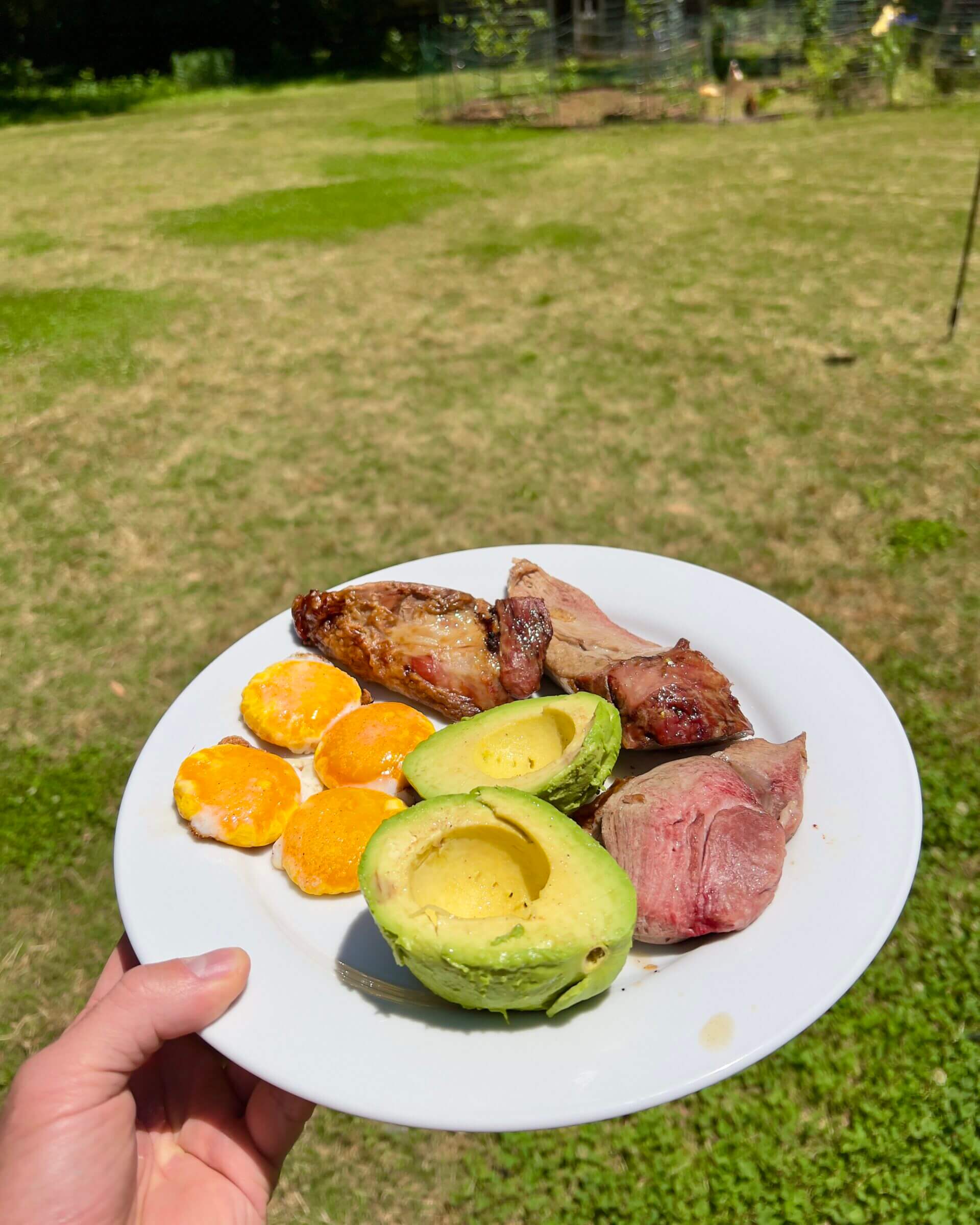
It makes me giggle when I see a breakfast menu that features an egg white omelet, usually presented as a healthier alternative to a regular omelet (which contains the yolk and all its cholesterol).
The truth is that the egg white is a waste product that’s only in the egg to protect the growing chick. In other words, it acts as a buffer and a shock absorber, but it’s useless from a nutritional perspective.
All the nutrients the baby chick needs are contained in the yolk — and that’s what you should be eating!
When I have eggs, I usually discard the whites and eat the yolks only. Next time you have breakfast at a restaurant, ask for a six-yolk omelet and enjoy the confused expression of the waiter.
What Kind of Eggs Does the Kummer Family Eat?

In the past, we used to buy pastured eggs from Vital Farms, White Oak Pastures and local farms in the area. Unfortunately, most brands we’ve come across feed their hens corn and soy, and that was one of the reasons why we decided to start raising our own birds as part of the Kummer Homestead project.
As a result, the eggs we consume meet the following criteria:
- 100% pasture-raised with sufficient space for each bird to roam and forage for food.
- 100% plastic-free watering system to prevent our hens from drinking water that contains endocrine-disrupting chemicals.
- Organic feed that’s free of corn and soy.
If raising your own hens isn’t an option, I recommend buying the best pastured eggs you can afford. Chances are, there is a farmers market or small family farm in your area that offers pastured eggs. If you’re lucky, you might even find corn-free/soy-free options.
Egg Packaging Code and Freshness
On all USDA-graded eggs, you should see a so-called “pack date” and a “sell-by date” printed on the carton. The sell-by date is easy to read, but you may not be familiar with the Julian date system that manufacturers use for the pack date (also known as the packaging date).
The pack date follows a three-digit format; for example, “152” (as you can see in the photo above I took of the egg carton in our fridge).
In this Julian system, January 1st would be printed as “001” and December 31st would be printed as “365.”
So in this case, the number 152 represents June 1st (unless it’s a leap year).
Frequently Asked Questions
Consuming raw eggs has pros and cons. I regularly consume raw yolks because they’re incredibly nutritious and (over)cooking destroys some of their heat-sensitive vitamins.
However, I don’t recommend consuming raw egg whites because they contain antinutrients that block the absorption of other nutrients in the egg.
Most commercial eggs are washed before they can be sold to consumers, and that process removes the protective membrane on the eggshell. As a result, you have to refrigerate the eggs you buy at the grocery store.
However, if you get farm fresh eggs that weren’t washed, you can store them at room temperature for several weeks. Just be aware that if you wash them, you have to put them into the fridge.
No, you don’t! In fact, I don’t recommend washing eggs because it removes the protective membrane that fresh eggs naturally have. We don’t wash our eggs at all, even if they’re a bit dirty. However, in the rare event that they’re completely soiled, we wash them right before using them.
It’s a myth that cholesterol and saturated fat are bad for your health. There’s no correlation whatsoever between dietary cholesterol and the cholesterol levels in your blood. You can learn more about dietary fats and their impact on our health here.
Yes, egg yolks are an excellent source of vitamin D. Depending on how the hen was raised, a single yolk can contain over 40 IU of vitamin D — that’s about 5% of your daily recommended amount.
Yes, a large egg has between 0.4 and 0.6 grams of carbs.
Pasture-Raised Eggs vs. Free Range Eggs: Closing Thoughts

If my average consumption was one or two eggs per month, I probably wouldn’t care if those eggs came from a pasture-raised animal or not. But we eat close to 48 eggs per week. That’s a lot! (Almost seven eggs a day, to be exact.)
As a result, the nutritional value of each egg makes a significant difference to us.
Aside from the health benefits, you’ll notice a difference in the flavor. And buying pastured eggs is the moral and ethical thing to do. After all, the animals we raise, the environment we live in, and our bodies all deserve to be treated with respect. The choices we make as consumers directly influence that.
As a result, I highly recommend pastured poultry eggs over any other type of eggs, and I don’t see myself going back to those pale yolks we had before. The benefits of pastured eggs are simply too significant.

Michael is a healthy living enthusiast and CrossFit athlete whose goal is to help people achieve optimal health by bridging the gap between ancestral living and the demands of modern society.
Medical Disclaimer
The information shared on this blog is for educational purposes only, is not a substitute for the advice of medical doctors or registered dieticians (which we are not) and should not be used to prevent, diagnose, or treat any condition. Consult with a physician before starting a fitness regimen, adding supplements to your diet, or making other changes that may affect your medications, treatment plan or overall health. MichaelKummer.com and its owner MK Media Group, LLC are not liable for how you use and implement the information shared here, which is based on the opinions of the authors formed after engaging in personal use and research. We recommend products, services, or programs and are sometimes compensated for doing so as affiliates. Please read our Terms and Conditions for further information, including our privacy policy.
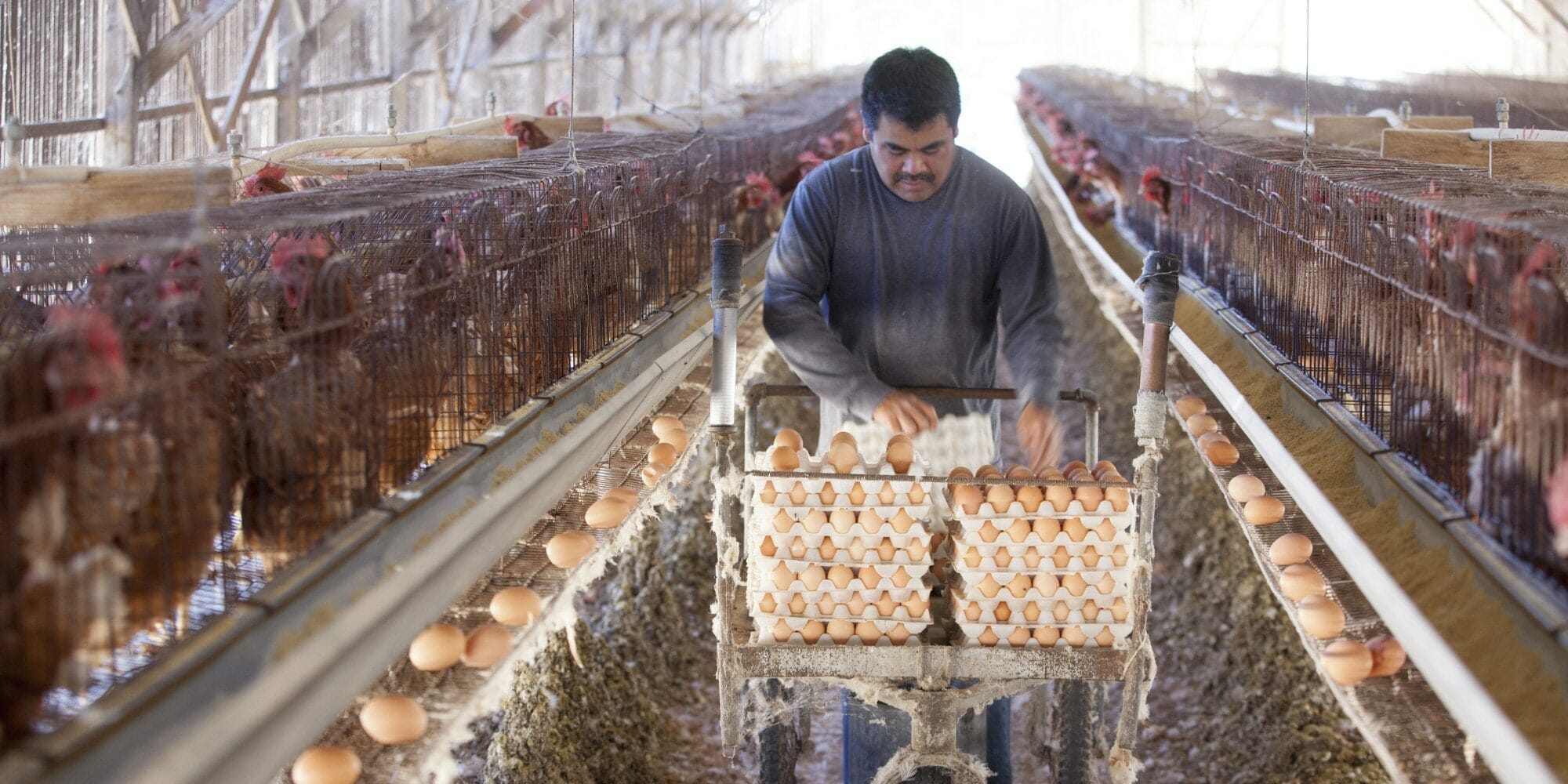
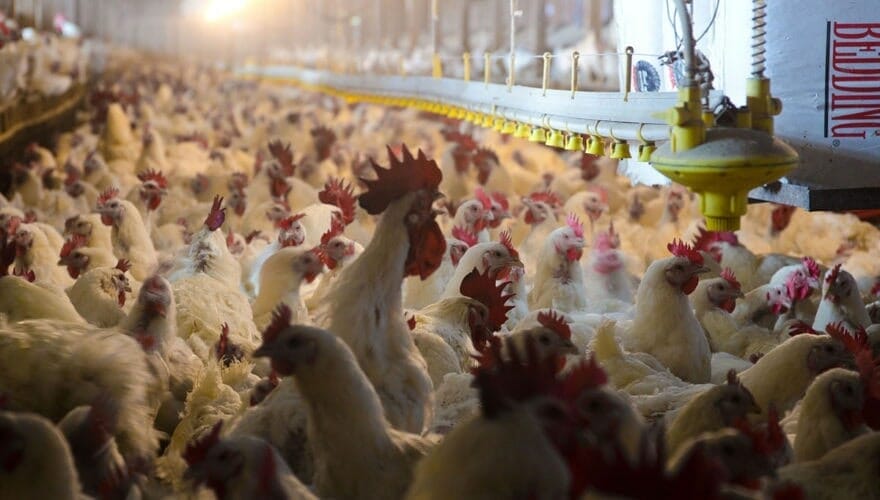
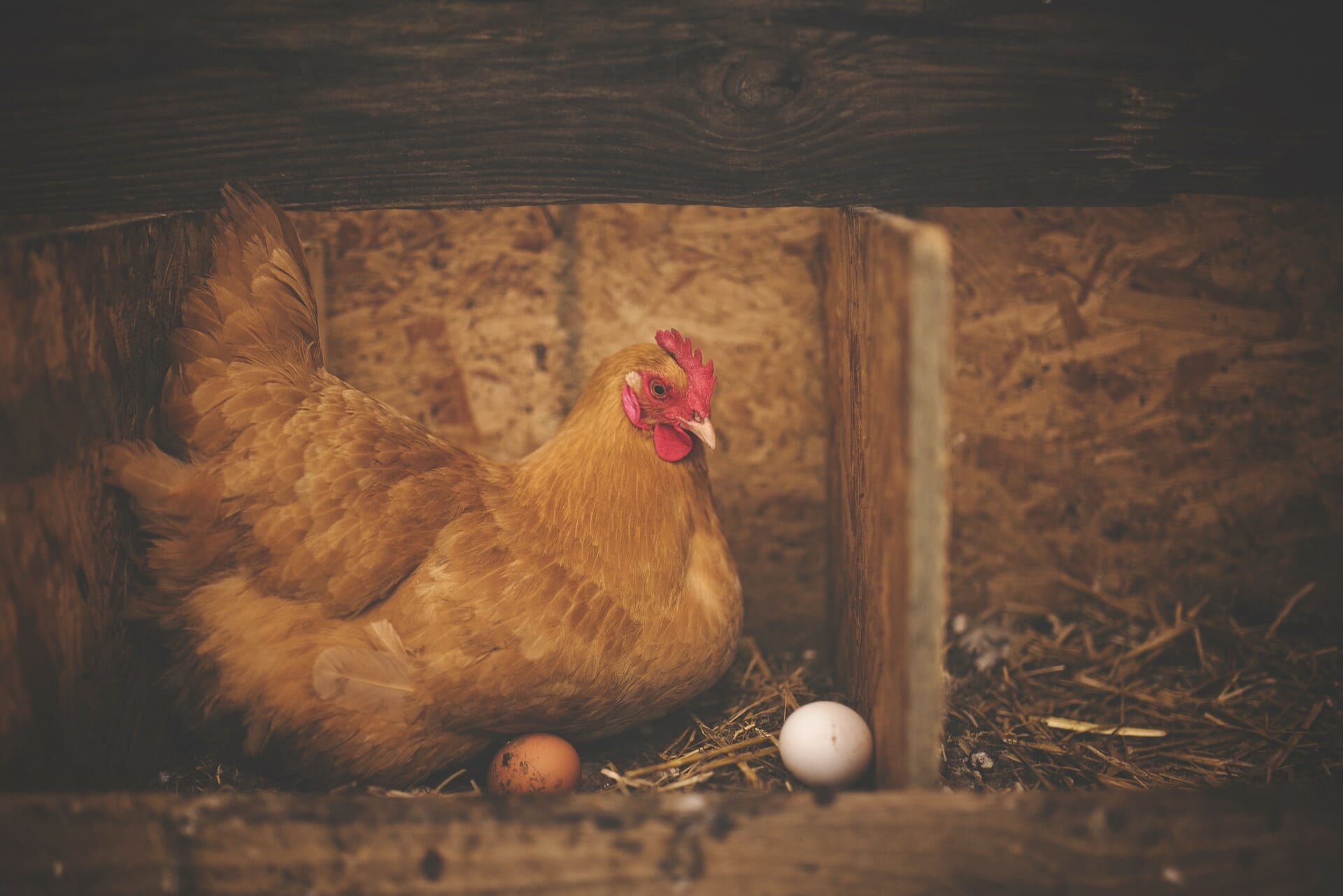


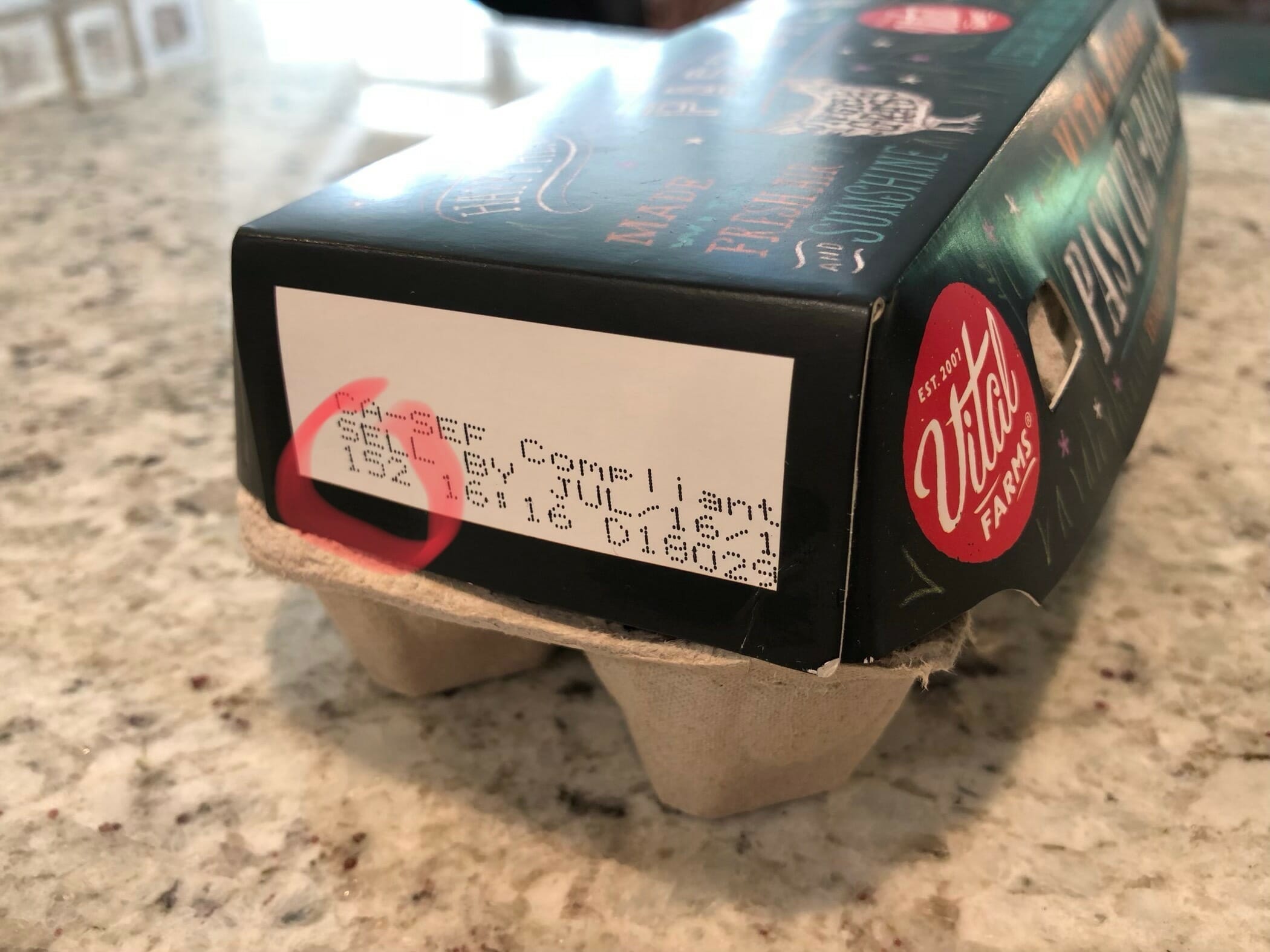
Can you please provide sources to this post? Great read, and I also would like to read your direct sources on studies etc.
If you carefully read the article, you’ll notice that I have sourced most medical claims. What specific part of the article would you like to see a source for?
I’m wondering the same, perhaps scientific studies providing nutritional info for each egg.
Did you see linked study below the following paragraph: A study from 2010 compared the vitamin A, vitamin E and fatty acid composition of the eggs produced by both caged chickens and pastured chickens, finding the following.
It shouldn’t come as a surprise that hens that aren’t fed a species-appropriate diet don’t lay eggs with the best nutritional profile.
Informative post. Keep sharing!
As a techie, I think I can clear the air. GMO crops come in mainly 2 types.
The first is resistant to glyphosate, an herbicide. Glyphosate isn’t supposed to affect insects and animals. However many studies are indicating it may. What IS known is glyphosate DOES affect bacteria in the gut microbiome. Bees seem to be hardest hit and it may be a key factor in colony collapse disorder.
https://www.ehn.org/whats-the-worlds-most-widely-used-herbicide-doing-to-tiny-critters-2631750527/ecological-impacts-emerge
The second is a class of GMO which DOES produce it’s own insecticide, to correct one of the posters who said this isn’t true. It is and the commonest crops are corn, soybeans and cotton. BT corn has genes from a soil bacteria infused that kill insects. The pollen from the corn may be harmful to the Monarch butterfly. A mouse study indicated it caused inflammation.
High consumption of eggs has been shown to increase the orobability of men getting prostate cancer. Type of eggs not disclosed in studies. These stydies typically rely on surveys not closed environments where subjects are closely monitored. But something to consider if you are a man. Just something to consider. No real culprit within the egg identified as as causkng the link. Observational not proven definitively. I also like the yelliw box eggs that come out of Arkansas… I believe called Happy Egg Company. I’m sure the way eggs are prepared and what consumed with play a role. Pointing out the misleading marketing terms as you have done is very helpful. I’m slso on the non GMO side of the fence for many reasons… The orimary one is I do not want a small handful of Giant Ckrporations strong arming small farmers into growing only their patented seeds. Most GMO produce I’ve seen looks pretty bjt has lityle taste.
Hi Mike,
I tend to ignore those observational studies because they’re for the most part useless. First eggs were bad because of their cholesterol, then saturated fats. Now it’s diabetes and cancer. It’s all BS. I keep eating 4-8 pastured eggs per day and my bio and epigenetic markers don’t show any issues with that.
Cheers,
Michael
“Less than half the ratio of Omega-6 to Omega-3”
What does this mean? Does that mean that the ratio is less than 1:2?
Also, would love a source for that! Thanks.
Hi Sarah,
I have linked the study right above the part where I made that claim. What the last bullet point means is that if regular eggs have an 6:3 ration of 30:1, then pastured eggs have a ratio of 15:1 or lower.
Great article! While I knew all of this, I know others don’t and I will share a link with my friends and clients. Thank you!
I am a little surprised on your stance on GMO’s though. At the end you state “the environment we live in and our body deserve to be treated well” and many GMO crops increase the use of pesticides which is not good for either.
Hi Jodi,
Thanks for your feedback, I appreciate it! My understanding is that the purpose of GMO crops is to make them less vulnerable to pests, so that should result in fewer pesticides being used. What makes you think the opposite is the case?
Thanks for starting this important conversation. There is substantial, recent evidence that GMOs are increasing the amount of toxic chemicals in our environment and our bodies.
The problem with GMOs is not so much in the food product itself, but it is as Jodi points out, the increasing the amount of pesticides put into the environment has a tremendously negative effect on water and soil pollution, not to mention, human health.
GMOs, almost exclusively used in conventional agriculture (and never used in organic agriculture), were first introduced to the US in 1994, and since then applications of glyphosate, commonly called Roundup, has doubled for corn and increased 39% for soy. These grains are major components in all livestock feed.
While it seems that GMOS would require less toxic chemicals, the reality is that their evolving resistances require ever increasing applications of pesticides.
How does that affect people? As recently as May of 2018, studies came out showing that 70% of our drinkable water contains evidence of glyphosate AND more importantly, since GMOs were introduced 24 years ago, human exposure to glyphosate, identified in 2015 by World Health Organization as a human carcinogen, has increased 500%. This is just one side effect of chemically grown GMO crops.
Is there a healthier option? Organic production does not put synthetic herbicides or pesticides into our environment and organic has exceptionally high animal welfare standards. So, when we buy groceries, we need to look at the ripple effect of our purchases, and ask ourselves what kind of a future are we really buying into.
The pesticide, Round Up (if using the Monsanto brand seed..and yes, the weed killer you buy at your local home improvement store) is already in the seed. They no longer have to spray crops with pesticides but the pesticides are definitely still in the food.
GMOs are bad for the environment and sustainability, and prevent farmers from owning and planting their own seeds. There are many, many more negative effects that GMOs create but that’s a whole other lengthy conversation.
Whether or not you care about eating GMOs, their impact on the environment and society is enough to give one pause.
Also, much to my delight, my local Costco has changed over to organic, pastured eggs.
Thanks for posting this article. My husband was asking why I don’t buy the regular cage-free eggs at Costco and I shared the information you posted with him.
It should be noted that RoundUp (glyphosate) is a non-selective herbicide, not a pesticide. That is not to say that a lot of the points you made are not correct. Glyphosate resistance in weeds is real and resulting in increased applications and I don’t want it in my food or water either. But your arguments hold more weight when you don’t include a miscategorization of the chemical your demonizing right off the bat.
The pesticide is not in the seed. The seed is modified so that the plant does not die when sprayed with specific herbicides which are used to kill the surrounding weeds. This is done to limit the amount of herbicide necessary and to alleviate much of the physical labor required to manually go through fields and cull the weeds.
I’m not advocating one way or the other, just attempting to clarify what a GMO plant in this case is. There are certainly other types of modification unrelated to herbicide resistance but that is the type discussed in the article.
Michael, if you read Gabe Brown’s latest book, “From Dirt to Soil”, you can find out how to make crops pest resistant without pesticides! A number of other spin off effects to. One secret is to never use chemical fertilizers, aka NPK. |Once not used all plants root system expands in search of mykorrhiza connections and nutrients. These nutrients are what the plants need to build decent immune systems. Same for us. And when we do not get them from the plants or the eggs we eat, we buy supplements, which is hit and miss as our science has not yet found the “ideal” supplements. Safer getting the “proven ones” from plants or from animals eating such plants, like in the past.
One very interesting thing in the book is that real high carbon soil can be built in a few years, not 100’s of years that we have been taught. An eyeopener for me at least!
Informative post, this is. It is always nice to come across a post that is useful.
This was good information! The next level of relevant information I would add is how to determine freshness from the packing-date code.
Thanks, that’s an excellent suggestion!
Love this article, Michael! Drives me crazy when I go to Trader Joes and they’ve got every which way of Cage-Free, Free-Range, Organic, etc. eggs. I studied up on this a while back. Plus, I’m from Iowa and I’ve looked into those mega barns where there are thousands of chickens packed in with the lights burning day and night.
And yes, those “Free-Range”chickens are not bright enough, nor have the inclination to make it down to the end of the building to make it out that 18” high door. So, there is no such thing as “free-range” except for pasture raised.
We only buy the Vital farms eggs as well. I’m not so concerned about the organic part, coming from them, though.
Thanks again for another valuable article!
Hi, I love vital farms pasture raised eggs. My question to you is have you received any compensation from vital farms for what you have written about them ?
Hi Sheila!
Yes, they sent me a couple of coupons. But it’s worth noting that we ate their eggs before I did the review and we still do. A couple of free eggs were not the reason I wrote the article :)